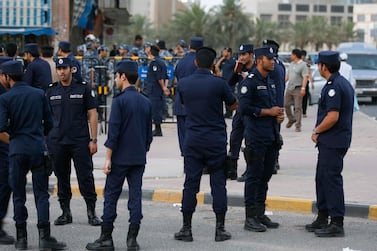A Kuwaiti defendant accused of killing a local woman denied wrongdoing on Tuesday as his court case was postponed until the end of the month.
Farah Hamza Akbar was murdered and her body was left outside a hospital in eastern Kuwait last month. She was killed despite pleas from her family to authorities to provide protection for her, after she had been subjected to a campaign of threatening harassment.
Her death sparked anger among Kuwaitis who are now demanding greater protection for women.
Kuwait’s criminal court charged the perpetrator with forced kidnapping, the intent to kill as well as premeditated murder, in addition to kidnapping Akbar's daughter and niece.
During Tuesday’s hearing the defendant denied the charges made against him.
He informed the court that he works with the army’s intelligence service while studying psychology at Kuwait University.
The next hearing will be held on May 25, the court said.
The defendant reportedly abducted Akbar in front of her daughter and niece.
A statement from the interior ministry reported that a man had seized Akbar from her car and taken her to an unknown location before leaving her outside the hospital where she was pronounced dead.
He was arrested shortly afterwards and confessed to stabbing her in the chest, the ministry said.
The suspect was first detained on harassment charges brought by Akbar’s family before his release on bail.
Kuwait’s punishment for first degree murder is death.
Akbar’s sister, Dana, said "may God give victory to the truth" hours before the court case started.
"I wish that the justice system will apply retribution as soon as possible," she said.
After her death was announced, Farah Hamza Akbar’s name became one of the most popular hashtags on Twitter in Kuwait.
Activists launched a social media campaign earlier this year known as "Lan Asket" which means I will not be silent in Arabic to highlight the issue of harassment, following dozens of reported incidents from women.








